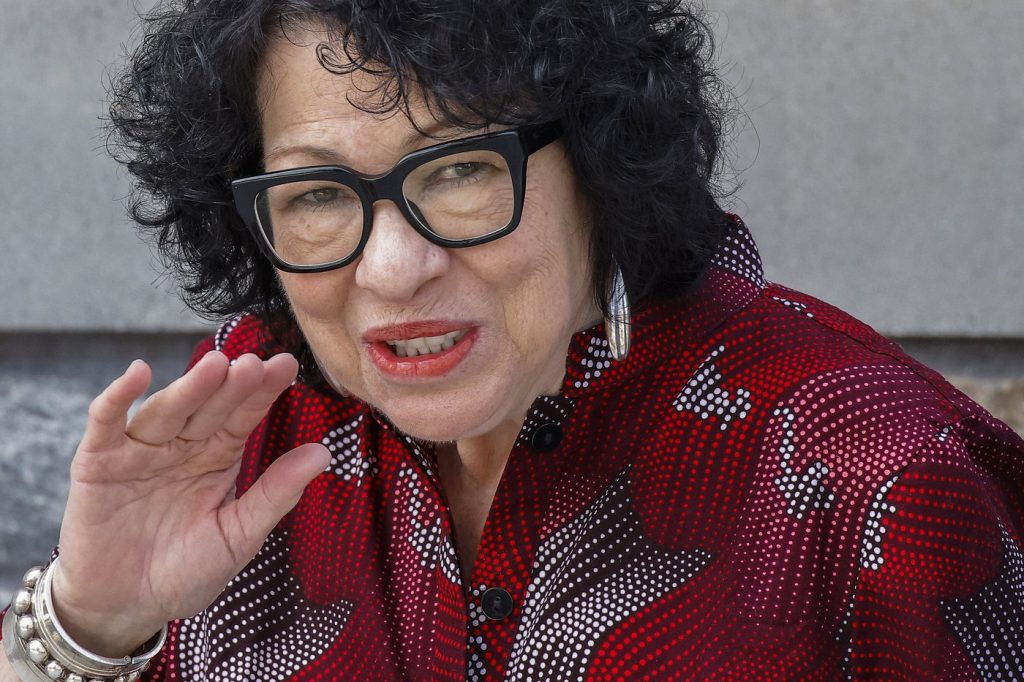On Wednesday night in Louisville, Kentucky, U.S. Supreme Court Justice Sonia Sotomayor expressed concerns regarding the declining public confidence in the Supreme Court, particularly in light of her conservative colleagues' rapid overturning of long-standing judicial precedents. During her appearance, she suggested that greater public support may be achievable if the court exercised more caution in its approach to changing existing laws.
Sotomayor highlighted the significant transformations initiated by the conservative-led court, which has been reshaped by three justices nominated by former President Donald Trump. Notably, the court's decision to overturn Roe v. Wade eliminated nationwide abortion rights protections, while another ruling eliminated affirmative action in college admissions, disrupting decades of established legal precedents. Although she refrained from discussing these particular cases in detail, she underscored a broader public sentiment that becomes unsettled when the court takes decisive actions too swiftly.
Sotomayor articulated her belief that rapid changes in legal precedent contribute to instability in society, affecting public perceptions of the legal system and questioning whether the court's decisions stem from impartial legal analysis or partisan agendas. She clarified that while she does not accuse her colleagues of partisanship, she understands their conviction in interpreting the Constitution in a specific manner that they believe strengthens democracy. However, she stressed that regardless of their intentions, the pace of change can leave the public feeling insecure.
According to Sotomayor, if the court continues to make decisions that the public struggles to comprehend, it risks significant backlash. She stated, “If we continue going in directions that the public is going to find hard to understand, we’re placing the court at risk.” Her recommendation was clear: the court should proceed with caution when reversing precedents to maintain public trust.
Moreover, Sotomayor defended the judiciary, claiming it as the most transparent branch of government due to its requirement for judges to provide written explanations for their rulings. She emphasized that the legal process demands clarity in how decisions adhere to the law, which helps ensure the function of the judiciary remains accountable to the public.
When asked about what she enjoys most about her role, Sotomayor conveyed her appreciation for being an active participant in critical decision-making. She expressed the significance of voicing her legal opinions, even in dissent, stating that it is crucial for her insights to be acknowledged by her colleagues. The justice experienced a sense of fulfillment when she could persuade others, even though such instances have become increasingly rare in recent times.
Sotomayor’s engagement in the Louisville event lasted over an hour, during which she answered questions posed by the dean of the University of Louisville’s law school. She was in the city to receive the Brandeis Medal, an accolade awarded to individuals in the legal profession who have demonstrated commitment to public service and the promotion of social, economic, or political justice. The law school bears the name of Louis D. Brandeis, a former Supreme Court justice hailing from Louisville.
Earlier in the event, Kentucky Democratic Governor Andy Beshear remarked on the court's essential role in upholding impartiality and justice within democracy. He asserted that the Supreme Court embodies the rule of law, forming a foundation for a government designed to serve all people, not exclusively the powerful. Beshear, noted for his political aspirations, is viewed as a potential candidate for the 2028 presidential election.










